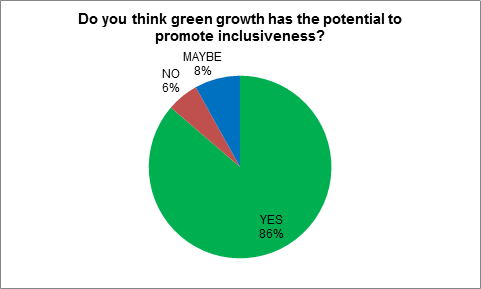Deliberating on green growth and sustainability
Delhi Sustainable Development Summit (DSDS) is a flagship event organized by The Energy and Resources Institute (TERI). DSDS serves as an international platform to facilitate the exchange of knowledge on all aspects of sustainable development. It is organized every year since 2001 and over the past thirteen years, has brought together various Heads of State, thought leaders, policy makers, research and academia, leaders from industry, and civil society to deliberate on a range of issues related to global sustainability.
DELIBERATING THE MOST PRESSING ISSUES
The DSDS every year is based around a theme which is identified to be the most pressing issue of the current times. The themes at DSDS have ranged from 'Poverty: The Global Challenge' for the year 2001; 'Ensuring Sustainable Livelihoods' for the year 2002; to 'Protecting the Global Commons: 20 Years Post Rio' in the year 2012; and to 'Global Challenge of Resource Efficient Growth and Development' in the year 2013. Water, energy, and food are greatly interlinked as well as interdependent; and securing them is considered central to alleviating poverty and to creating a robust green economy. And thus, 'Attaining Energy, Water and Food Security for All' was identified as the theme for the 14th edition of the Summit, which was held from 6-8 February, 2014 at New Delhi, India.
The Summit this year discussed on these specific issues; and strived to find ways forward towards a greener and more sustainable future. The keynote address on the inaugural of the Summit was delivered by Mr. Kofi Annan (Nobel Laureate and Former Secretary-General, United Nations) who reiterated that developing countries cannot continue to exploit the resources of the world like the developed countries have done; and lack of access to water, energy and food withholds the growth of developing countries. The three-day event witnessed participation from several other eminent world leaders including Mr Salman Khurshid (Minister of External Affairs, Government of India); Dr Farooq Abdullah (Minister of New and Renewable Energy, Government of India); Mr Danny Faure (Vice-President, Seychelles); Lord John Prescott (Former Deputy Prime Minister and Member of Parliament, House of Lords, United Kingdom) and Dr R K Pachauri (Director General, TERI).
LOOKING FORWARD TO NEXT YEAR'S DSDS
The theme for the forthcoming year has been declared as 'Sustainable Development Goals and Dealing with Climate Change'. Like always, DSDS 2015 would also seek to bring together the world's most astute thinking and carry out meaningful discussions to help evolve a global consensus; that could facilitate the transition of ideals of sustainability into the thinking and action.
CAN GREEN GROWTH PROMOTE INCLUSIVENESS?
DSDS 2013 saw many plenary sessions and thematic events around green growth. At DSDS 2013, an memorandum of understanding was signed between TERI and the Global Green Growth Institute. A poll on inclusive green growth was conducted as a part of TERI's project on low carbon development supported by the United Nations Development Programme (UNDP) and Shakti Sustainable Energy Foundation. The poll captured opinions of experts on the subject of inclusive green growth for sustainable development. A total of 124 respondents were approached in person during various events of the Summit. The respondents whose opinions were captured made a fair representation from government, multilateral organizations, civil society, media, business and industry and research and academia. Out of the total of 124 respondents, 39% were from OECD countries and 61% from non-OECD countries; the respondents also represented a good geographical scope with representations from countries of South Asia; East Asia and Pacific; Europe and Central Asia; America and Caribbean; Sub-Saharan Africa; and Middle East and North Africa.
Green growth has been recognized to have the potential to develop an inclusive, resilient and sustainable pattern of growth across countries.
Undeniably 'growth' has been an essential part of development planning with the gross domestic product (GDP) as an indicator for economic progress in countries. In India, for instance, growth and development have always been a part of the planning processes that have emphasized on equity and inclusive growth. Nicholas Georgescu-Roegen argued that economic processes involve not only quantitative changes but also qualitative transformations which are difficult to incorporate in traditional models of economic growth and development. As Amartya Sen would have argued - "growth-mediated" development supplemented through social protection policies leading to outcomes in terms of improved human well-being.
The Economic and Social Commission for Asia and the Pacific discusses the concept of green growth in terms of improving energy, water and food security; and emphasizes that green growth can be instrumental in achieving MDGs, especially in developing countries. OECD literature highlights that green growth reinforces the agenda to promote inclusiveness, while at the same time ensuring economic development and environmental resilience of the society (OECD, 2012). In the context of India, the Thirteenth Finance Commission Report (paragraph 3.15) articulates green growth as, "Green growth involves rethinking growth strategies with regard to their impact(s) on environmental sustainability and the environmental resources available to poor and vulnerable groups".

The poll that was conducted during DSDS 2013, majority of poll respondents-around 86 per cent, felt that 'green growth' does have the potential to promote 'inclusiveness'. Perceptions around green growth and inclusiveness, captured from the poll are depicted in the pie chart above. As a next step, a collaborative project implemented by TERI and the Global Green Growth Institute will seek to examine empirically the benefits of green growth strategies on social outcomes.
